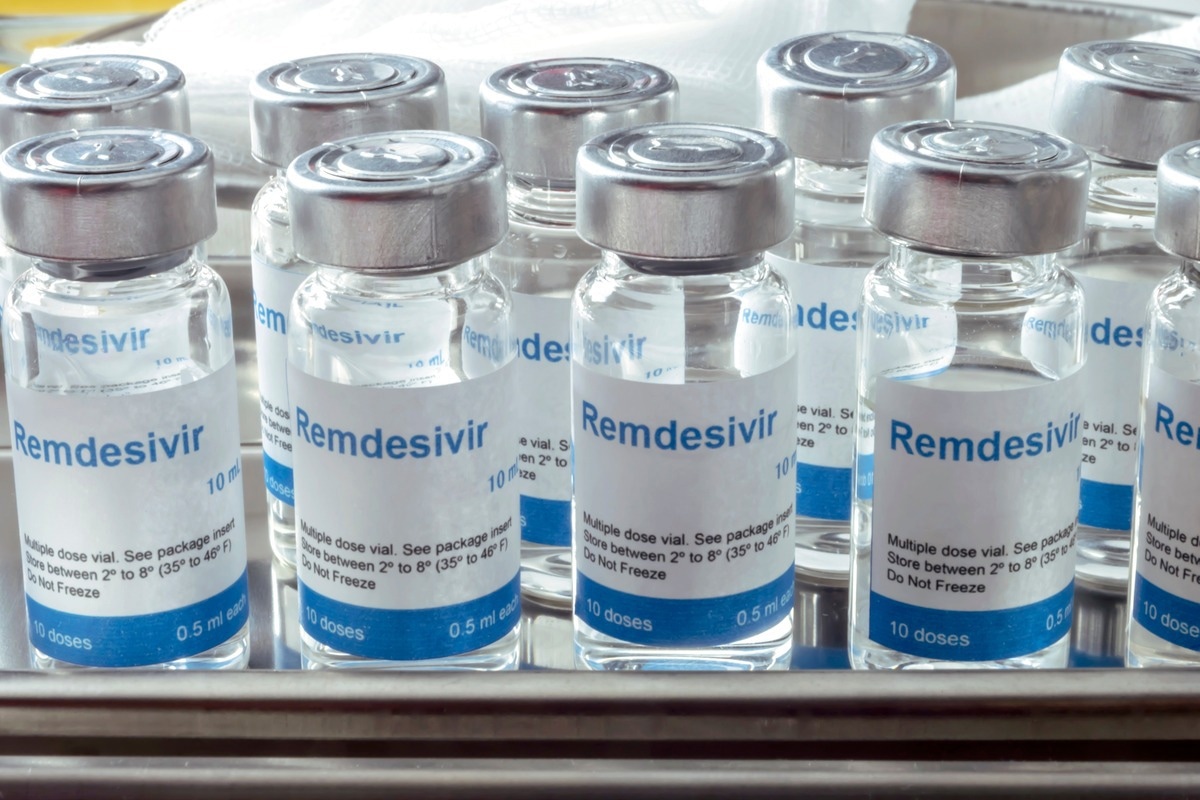Remdesivir resistance in renal transplant patients with long COVID-19

Scientists have devised various pharmaceutical and non-pharmaceutical strategies to protect individuals from severe acute respiratory syndrome coronavirus-2 (SARS-CoV-2), the causal agent of the ongoing coronavirus disease 2019 (COVID-19) pandemic.

Despite their efforts to contain the disease, the emergence of novel SARS-CoV-2 variants across the globe has prolonged the pandemic.
Background
According to a recent meta-analysis, that included approximately 12,000 solid organ transplant (SOT) recipients, a humoral response induced via COVID-19 vaccination was significantly reduced in the study group, compared to immunocompetent hosts. This finding indicates that although vaccination has lowered the incidence of severe COVID-19 disease in the majority of immunocompetent hosts, it does not significantly protect SOT recipients from severe infection, which may lead to death.
Remdesivir, a prodrug of the nucleoside analog GS-441524, effectively inhibits the function of RNA-dependent RNA polymerase (RdRps) in multiple RNA viruses. It was the first drug that was approved by the U.S Food and Drug Administration (FDA) for the treatment of COVID-19.
Recently, researchers reported a case of remdesivir resistance in a patient with persistent SARS-CoV-2 infection. This patient was also undergoing treatment with rituximab and bendamustine for lymphoma. Very few studies address the issue of resistance to COVID-19 therapeutics during treatment.
A new study
A new study currently posted to the Research Square* preprint server has reported two renal transplant cases, in which individuals, after being exposed to remdesivir, developed a resistance to the drug. This occurred owing to a de novo V792I RNA-dependent RNA polymerase (RdRp) mutation.
The first patient who received a renal transplant was 60 years of age and had a history of diabetes, vascular disease, and hypertension. The patient underwent a deceased donor kidney transplant (DDKT) after reaching end-stage renal disease (ESRD). Scientists reported that before the transplant, the patient received two doses of the COVID-19 vaccine (BNT162b2). Before the transplant, the patient was subjected to immunosuppressants, such as basiliximab and methylprednisolone.
Clinicians observed an increased level of anti-A titer in the blood type B recipient and as a result, they quickly shift the patient from basiliximab to anti-thymocyte globulin (ATG). Six months post-transplant and after several modifications in the treatment process, the patient tested SARS-CoV-2 positive with a cycle threshold (Ct) of 27.1.
Genomic sequencing showed that the patient was infected by the Omicron variant. This patient was treated with a five-day course of remdesivir and showed improvement in symptoms. However, 24 days after the first diagnosis of COVID-19 disease, the patient required readmission with worsening COVID-19 symptoms and showed a Ct of 24.4. After another course of remdesivir (five-day) and dexamethasone (ten-day), de novo RdRp mutation V792I (G15814A) was observed.
This patient was also diagnosed with Epstein Barr virus (EBV) – positive diffuse large B-cell lymphoma (DLBCL), consistent with the monomorphic post-transplant lymphoproliferative disorder (PTLD) and, thereby, chemotherapy was initiated. The patient tested SARS-CoV-2 positive after 110 days after the first COVID-19 diagnosis with Ct of 22.6, and another de novo synonymous mutation in RdRp at K890 was identified.
The second patient who received a renal transplant was 50 years of age with a history of diabetes, splenectomy, and vascular disease. Similar to the first patient, the second patient also received two doses of the COVID-19 vaccine (mRNA-1273). This patient was also subjected to immunosuppressants (methylprednisolone and ATG) and various other drugs.
The second patient tested SARS-CoV-2 positive fourteen months after the transplant and was treated with a course of remdesivir (three-day) and baricitinib (four-day). Clinicians identified a de novo V792I (G15814A) mutation in RdRp. The patient responded to the treatment well and was soon discharged from the hospital. However, after 18 days of COVID-19 diagnosis, he was re-admitted owing to worsening SARS-CoV-2 symptoms. This time the Ct score was found to be 17.4 and de novo mutations in the nsp14 exonuclease and spike protein region were observed.
Implications
The current study showed that despite being vaccinated, both patients suffered COVID-19 infection for a prolonged time. Ineffective immune clearance is responsible for persistent viral replication in immunocompromised hosts. This condition also enhances the chances of viral mutation.
When renal transplant patients, infected with SARS-CoV-2 infection, were exposed to remdesivir, owing to an extensive immune deficit, an unchecked viral replication occurred for a prolonged period. Both the patients independently developed a de novo V792I substitution in ORF1ab, the open reading frame encoding nsp12, which limited the efficacy of remdesivir in these patients.
In this study, the authors highlighted the risk of immune escape in immunocompromised hosts. Additionally, they reported that remdesivir resistance occurred due to viral mutations in these hosts. Researchers stated that timely identification, treatment, and restriction of the spread of the mutated virus, are important factors in containing the COVID-19 pandemic.
*Important notice
Research Square publishes preliminary scientific reports that are not peer-reviewed and, therefore, should not be regarded as conclusive, guide clinical practice/health-related behavior, or treated as established information.
- Hogan, I.J. et al. (2022) Remdesivir resistance in transplant recipients with persistent COVID-19. doi: https://doi.org/10.21203/rs.3.rs-1800050/v1 https://www.researchsquare.com/article/rs-1800050/v1
Posted in: Medical Science News | Medical Research News | Disease/Infection News
Tags: Blood, Cell, Chemotherapy, Coronavirus, Coronavirus Disease COVID-19, covid-19, CT, Dexamethasone, Diabetes, Drugs, Efficacy, Exonuclease, Food, Genomic, Genomic Sequencing, Hospital, Kidney, Kidney Transplant, Lymphoma, Mutation, Nucleoside, Omicron, Pandemic, Polymerase, Protein, Remdesivir, Renal disease, Research, Respiratory, Rituximab, RNA, SARS, SARS-CoV-2, Severe Acute Respiratory, Severe Acute Respiratory Syndrome, Spike Protein, Syndrome, Therapeutics, Transplant, Vaccine, Vascular, Virus

Written by
Dr. Priyom Bose
Priyom holds a Ph.D. in Plant Biology and Biotechnology from the University of Madras, India. She is an active researcher and an experienced science writer. Priyom has also co-authored several original research articles that have been published in reputed peer-reviewed journals. She is also an avid reader and an amateur photographer.
Source: Read Full Article